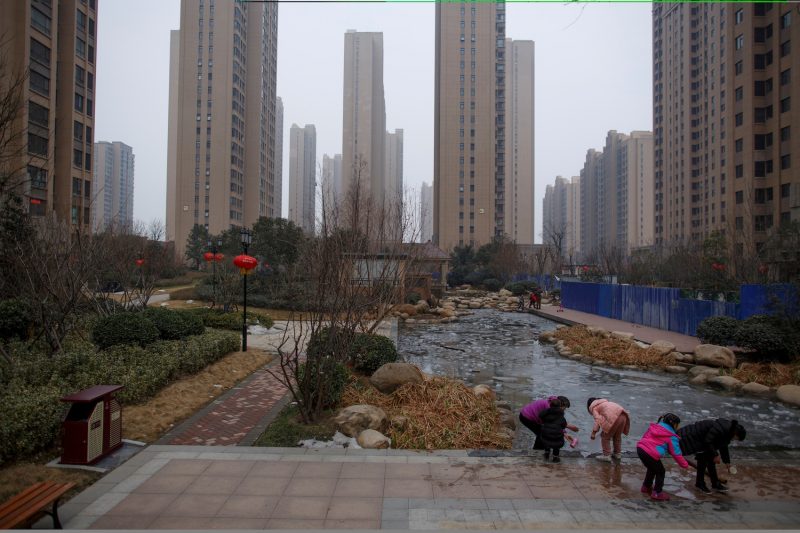(ATF) In many of China’s metropolises, property rules, rather than love, have been a deciding factor on whether a couple get married or divorce.
To limit home-buying demand, first-tier cities such as Shenzhen have policies that say only local hukou (domestic passport) holders are allowed to buy residential properties, leaving migrants out in the cold unless they marry a local.
In Shanghai, migrants can buy residential properties but on the condition that they are married. It means fake marriage services in which intermediaries link up home-buyers with “spouses” through a contract have become a lucrative business.
Read more: Will Biden force China into a green energy investment race?
On the other side, are local couples who divorce to qualify as first-time home buyers who can then enjoy favourable policies – and remarry after they buy a second house.
But a resurgence in real estate prices in Shanghai, China’s largest metropolis, and Shenzhen, which ranks third by GDP, has prompted authorities to plug the loopholes, in line with the Chinese government’s stance that “houses are for inhabiting, not for speculation”.
“The number of homes owned by couples who have been divorced for less than three years will be counted based on the total they had when they were still married,” said one of the new rules released by Shanghai Municipal Housing Administration on Thursday.
The new rule would mean that a divorced partner has to wait three years before they can enjoy favourable policies open to first-time buyers, such as lower minimum down payments and lower mortgage rates – significant amounts saved for ordinary families.
FAKE DIVORCES
In Shanghai, where a family can own up to two homes, the new rule – which follows those in Beijing, Shenzhen, and Hangzhou, but is even stricter – would also prevent families from buying more through fake divorces.
The Shanghai housing authority has also raised the barrier for its tax exemption policy, requiring a home owner to own the house for at least five years before selling it, up from the previous two-year barrier.
“This new rule would increase the cost of buying pre-owned homes and cool the frenzy in pre-owned home transactions. Demands may be shifted to newly-constructed homes instead,” Chen Tiancheng and Zhang Chun-e, analysts from TF Securities, said.
In the meantime, a circular issued by Shenzhen Real Estate Registration Center said that it has suspended property ownership transfers between spouses, a measure that plugs the loophole long exploited by migrants who used fake marriage as a way to own a piece of the metropolis.
OWNERSHIP PERMIT
A home purchase through fake marriage can be finished in around eight months, Global Times said in a report citing an agent – after purchasing the home, the “couple” can divorce immediately, and then transfer the ownership permit, which usually takes up to six months to register.
The southern metropolis had introduced rules in July that said single residents must have held a ‘hukou’ as well as paid tax in Shenzhen for at least three years to be eligible for home purchases. Prior to that people could buy a house immediately after they obtain a hukou.
With the cost of an apartment equal to 43.5 times a resident’s average annual salary, housing affordability in Shenzhen is the worst among 80 megacities, according to E-House (China) Enterprise Holdings Ltd, a real estate firm.
“It’s a risky game to play. Legally speaking, there’s no such thing as a fake marriage. As long as a couple register for marriage, their marriage is recognised by law and they need to fulfil the liabilities as husband and wife. There will be risks related to the rights of jointly-owned property and even inheritance,” said Wang Yuchen, Director of Beijing Jinsu Law Firm.
HOUSE DEAL
The same risks apply to fake divorces, which in some cases have become real. A couple in Yinchuan, North-west China’s Ningxia Hui Autonomous Region divorced to get a good deal on a house. But the woman refused to remarry her husband after she took possession of the new property, local newspaper the Ningxia Daily reported in 2017.
Chinese authorities are determined to cool the property bubbles after monetary easing spurred a rebound in the residential market. The central bank capped loans for the real estate sector earlier this month for the first time.
Existing-home prices of certain popular projects in Shanghai surged more than 30% last year, according to China Real Estate Information Corp.
PANDEMIC IMPACT
The sales volumes of newly-constructed homes slowed in the first half due to impact from the pandemic, but have recorded a double-digit year-on-year growth in every month in the second half. Sales volumes almost doubled in September and December, according to TF Securities.
Chen and Zhang from TF Securities expect a measure on land supply in the authorities’ new rules to increase the supply of homes in suburban areas in Shanghai, which will bring down their prices.
In the long run, they expect the new rules, coupled with a more relaxed policy on hukou introduced last year, to keep the real demand for inhabiting strong, and Shanghai’s property prices to continue the upward momentum.
























